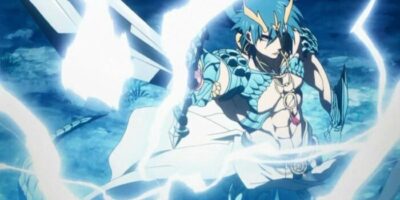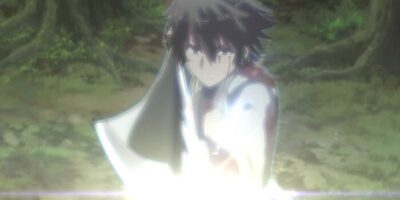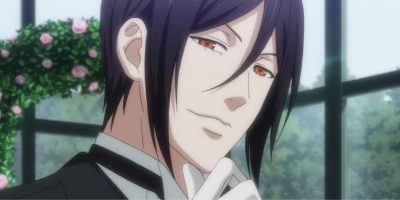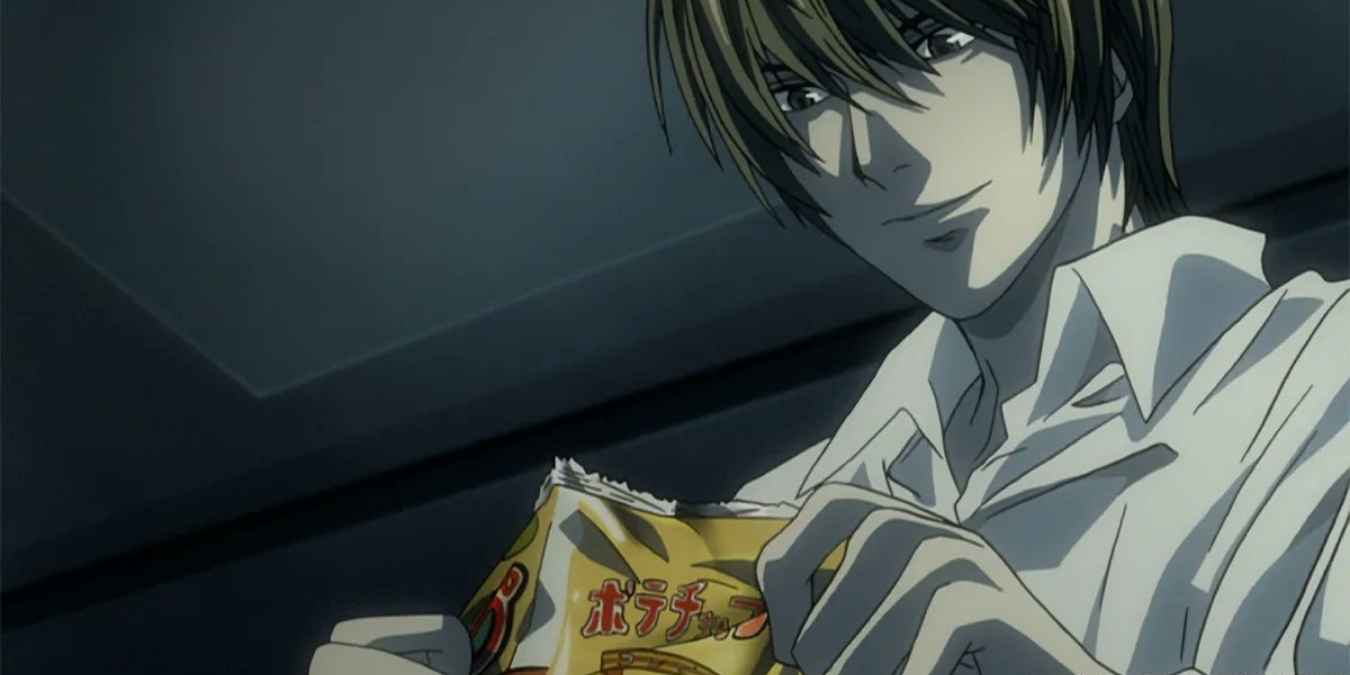
The hype surrounding Death Note may be a little out of control, but it’s hardly surprising given the cult following it’s gained over the years. Equally popular with hardcore anime geeks, anime noobs and those that don’t even like anime, even Netflix realised Death Note was worthy of an adaptation.
There’s a lot to love between the sublime animation, epic voice actors, on-point characterization, and perfectly executed scenes. And while the less we talk about the Netflix version, the better, there are certainly plenty of great reasons Death Note is worthy of the hype.
Looking for another anime series that’s totally worth the watch? Check out Black Butler.
Welcome to The Dark Side
Meet Light Yagami, the protagonist of our tale, who begins as a perfectly square high school kid and morphs into something very different after finding a notebook that grants him to power to kill anyone. All he needs to do is write their name in the book. And yet, as is often the case, things aren’t quite so straightforward. As Ryuk, a shinigami (basically a god), explains to Light, there are consequences to writing in the Death Note, and it only works when specific conditions are met.
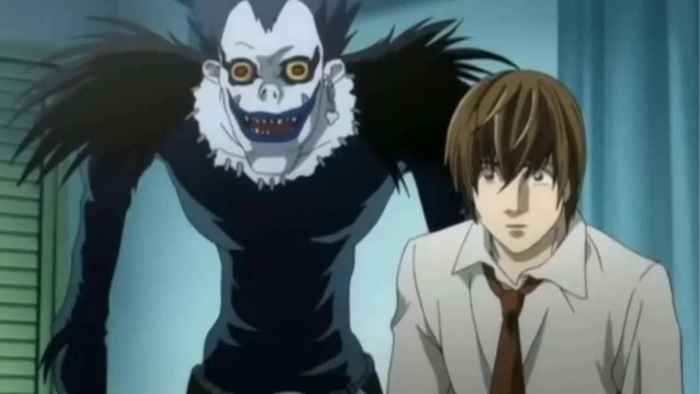
The narrative is propelled by Light’s decisions from that point on.
One reason Death Note proved so popular is the dark undertones of the series. It’s significantly darker than other anime series that broke into the mainstream. While the series’ central theme is justice and the notion that punishment should befit the crime, the morally ambiguous way Death Note explores this cliched trope elevates it significantly but seriously twists it.
Shows like Dexter have popularized the notion of the noble serial killer, who metes out justice and only kills the worthy. We’re used to shows preaching at us about the pitfalls of vigilante justice, of the need to carefully moderate it with a code of some description. A keen moral compass, religious doctrine, or some other guiding force ensures that vigilantism adheres to an agreeable sense of right and wrong.
Death Note doesn’t do this. If anything, it goes the opposite route by highlighting that even the best intentions in this regard seldom lead to anything resembling justice. And yet, this isn’t spelt out for us. It’s not absolute. It’s an impression you’re allowed to form for yourselves, and perhaps you will disagree with our analysis on watching it. Perhaps you’ll view it differently and take a different view.
But that’s the beauty of the show. Like all the best horror, it blends notions of religion and morality with concepts of the human condition and criminality, then adds a dash of fandom for good measure, and leaves the adults to form their own opinions.
Worthy Opponents
As a series of criminals in the Japanese underworld start mysteriously dropping dead, the case is picked up by ‘L’, a world-renowned consultant detective. By piecing together the criteria involved in each death, L unwittingly figures out what’s required for the Death Note to work. His quest sets him on a course directly opposed to Light, and like any detective worth his salt, he’s a worthy opponent. Much as Holmes and Moriarty duke it out intellectually, the series becomes a scene of psychological warfare as Light and L attempt to outwit each other.
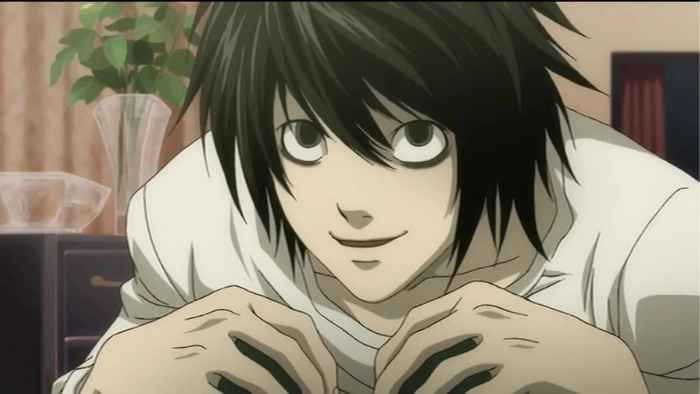
Given how competent they are, this quickly escalates and forms a bizarre bond between the pair, adding another layer of complexity to the show.
The parallels between L and Sherlock Homles may well explain his popularity, as the eccentricity and social awkwardness of the character make him both relatable, lovable, and the perfect foil for Light.
Light himself spends the series on an increasingly downward spiral as he becomes ever more obsessed with crime, punishment, and justice. At the same time, he must evade L and protect his own identity from the police, who are led by his own father.
If that wasn’t complicated enough, there’s more than one Death Note, and Misa Amane – the owner of the second – provides what initially appears to be an additional opponent. Misa quickly devolves, however, after developing a deep obsession with Light and unwittingly becoming the means he uses to evade L.
Slasher Level Comedy Horror
While Death Note is certainly a horror anime, it occupies the same space within the genre as slasher films, combining the horrific with the humorous to devastating effect. If you’re a fan of the idiotic antics of the teens in the Scream franchise or the gallows humor of Freddy Krueger as he prowls Elm Street, you’ll love this show.
The balance of horrific and hilarious is perfectly achieved. While the stakes of the core conflict between Light and L are constantly escalating, they are countered by character quirks and traits that deflate the tension and create a diverse tone that’s really enjoyable.
Light, for example, is a very serious character much of the time, but he periodically devolves into maniacal rants that are highly melodramatic and megalomaniacal. You then have the likes of Ryuk running around, who, while an omnipotent god-like creature with the power of life and death, also has a crippling addition to apples.
There’s something hilarious about an all-powerful shinigami whose appearance is terrifying, struggling to deal with apple withdrawal.
A Complex Mythos
Speaking of all-powerful, omnipotent beings, the presence of the Shinigami Realm adds further depth and complexity to an already great show. Ryuk’s apple addiction aside, the presence of god-like beings not only allows the how to vacillate between the shenanigans on earth and the antics of the Shinigami, but it also opens up wider questions and implications of the Death Note itself and the characters we come to love.
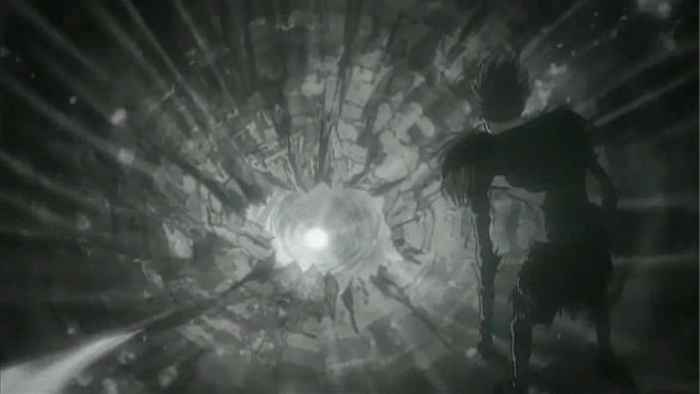
This is particularly true as the series progresses and Light devolves into a God complex that sees him use the Death Note to dispose of anyone standing in his path. The juxtaposition of this and a race of all-powerful gods of death who, despite their powers, are subject to all the trappings of human emotion and failure is incredibly powerful.
The Elaborate, Saw-Like Rules
Deadly games with super complicated or enigmatic rules are always big hits. Think Saw or Squid Game. Death Note is similarly constructed, with an elaborate game afoot, riddled with complex rules. On face value, the premise of the show is the height of simplicity: write a person’s name in the Death Note, and that person dies.
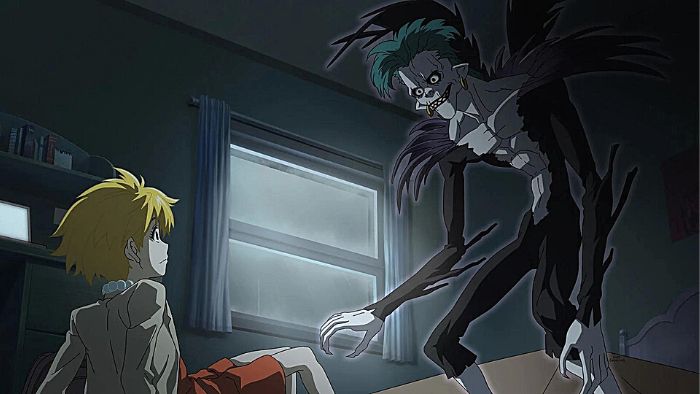
Dig deeper, however, and it’s far from that simple. There are rules surrounding the time of their demise, limits placed on who can be killed by the Death Note, criteria that need to be met for specifying the manner of death, not to mention endless specifics so complicated even Sherlock Holmes would struggle to fathom the full implications and limitations of each and every rule.
That’s the fun of it. The whole thing is an intriguing puzzle begging to be solved.
A Mopey Teenage Sociopath
We all love a sympathetic bad guy. The kind of complexly drawn villain that presents us with an intriguing question; can you forgive heinous crimes when the criminal acts on sound moral principles? Dexter is a top-rated TV show about a serial killer, yet we route for him because he only targets the worst criminals who evade the regular justice system. David Fincher’s film, Se7en, is an equally morbid masterpiece featuring a bleak Morgan Freeman and confounding moral questions that somehow negate some of the horrors the villain perpetrates.
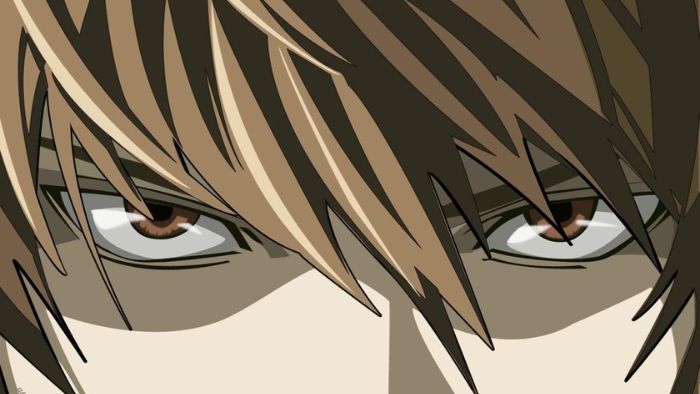
Death Note strikes a similar chord (pun intended) but with the added twist that the protagonist, Light Yagami, is a highly charismatic and typically moody teen with a moral streak as wide as his sociopathy and the ability to act on his murderous yet moralistic impulses.
Love Dragon Ball? Check out our guide to everyone’s favorite Dragon Ball Z.







